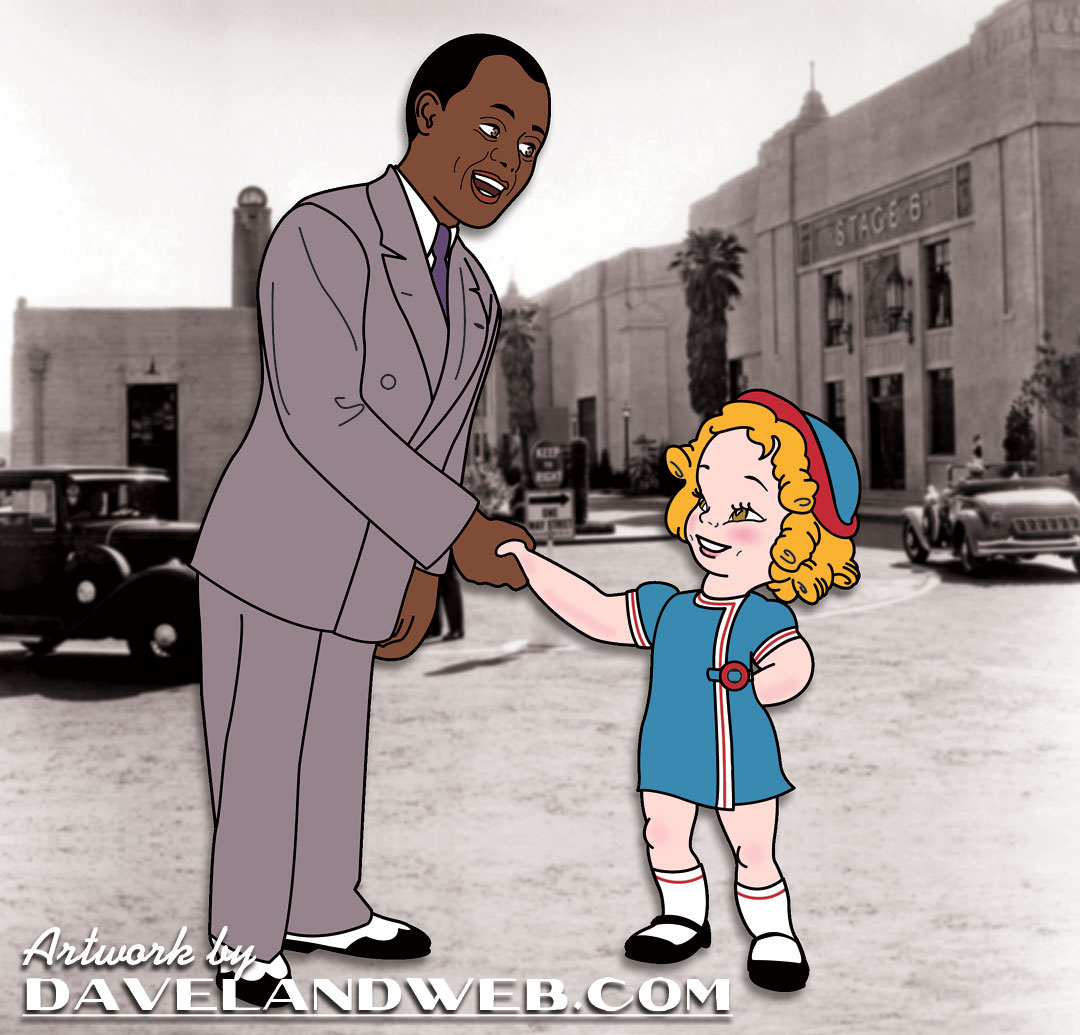
In the history of dancing pairs, Bill Robinson and Shirley Temple lead the way for a number of reasons. When it came to onscreen chemistry, these two had it over everyone else; their adoration for each other was evident in each of their four onscreen appearances together. While it may seem like small potatoes today, having a little girl dance AND hold hands with a man of color was unheard of back in 1935. This speaks volumes for both Winfield Sheehan and Darryl Zanuck, the Fox studio heads at the time. Both pushed the envelope of what audiences would accept by filming these numbers and including them. True, it was up to the exhibitors whether or not they excised those portions of the film when showing them to audiences, but Fox sent them those films complete. Which is more daring and worth honoring: a studio that risked a financial loss in 1935 by filming an interracial dance scene? Or a studio (Disney) that in 2020 will not re-release a film from their vault (“Song of the South”) because of potential backlash and cause a loss of money? While I agree that portrayals of people of color were often racially insensitive in older films, wouldn't it make a great teaching opportunity to show them instead of hide them, add a commentary track, and have an open discussion about how far we have come and how far we still have to go?
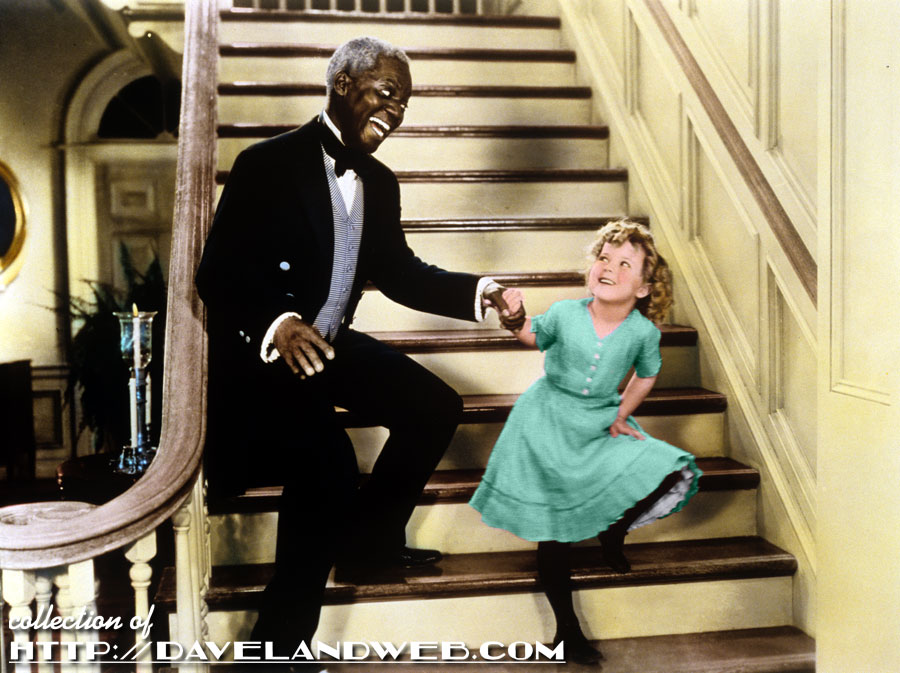
In June 2020, Melissa Joan Hart (a huge Shirley admirer) tweeted about Bill and Shirley:
The post…by Danica McKellar reminded me of one of my favorite Shirley Temple movies, The Little Colonel, because of the history of the stair dance she did with the incredible Billy 'Bojangles' Robinson. When studying the life of Shirley, I learned that it was the first time an interracial couple danced on screen together. Bojangles wasn't allowed to hold her hand but Shirley grabbed his anyhow during the dance and it made history. She also gave him full credit for making her a better dancer, as did Gene Kelly.
The backlash was immediate as a swarm of busy bees was unleashed, quick to point out that the movie and even the term "Bojangles" were racist and offensive. Comments included:
Did you miss the part about this scene taking part in a plantation? Look, I know you mean well by this, but it's not helpful.…Black people are begging for our help right now - giving them a story where the white girl is the hero is not it.…Bill Robinson was an incredible man, but try calling your friends 'Bojangles' and see what they have to say about it.
Melissa attempted to defend her post by saying she wanted to portray a story "about friendship and about breaking barriers,” but the bees did not want to hear it. Do I understand what Melissa was trying to say? Most certainly. Do I understand what the bees were saying? I sure do. What I don’t see is why people are unable to view occurrences through the lens of the times and see how these small baby steps back in the 1930’s were part of what helped shaped people’s opinions going forward. Armchair critics who tweet from the safety of their homes really don’t impress me much. There’s no reason why BOTH opinions can’t be valid and EVERY reason why people should work together for a solution (see earlier in this post for a suggestion on that), instead of wasting time arguing over who is right.
Back to Bill and Shirley. Some criticize Robinson for accepting roles as a butler or a servant; I find his acting skills break through that barrier. Robinson was able to add a touch of class, style, and elegance to every role he portrayed. When doing a scene with Shirley, he always came off as either a peer or an educator, regardless of his socio-economic status in the film. Here’s a scene from their second film together, “The Littlest Rebel”:
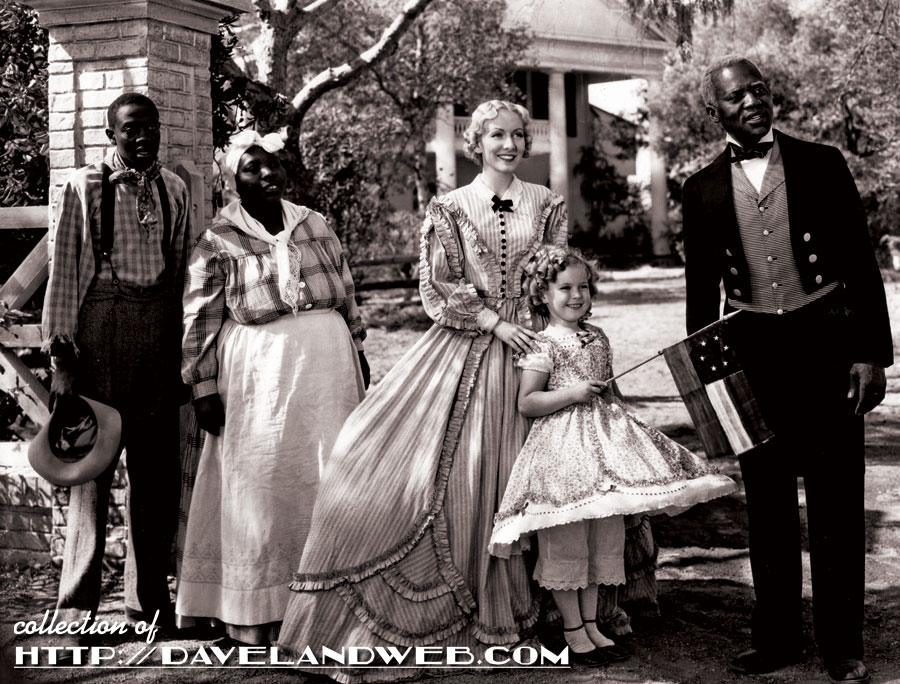
Bill and Shirley’s third on-screen pairing, “Rebecca of Sunnybrook Farm,” ended with one of their best dance numbers together, “The Toy Trumpet.” Here’s a behind the scenes shot of the sequence being filmed:

While “Just Around the Corner” may have been a less than stellar movie, their final film collaboration yielded two more opportunities for Bill and Shirley to entertain audiences with their dancing. “A Happy Little Ditty”:
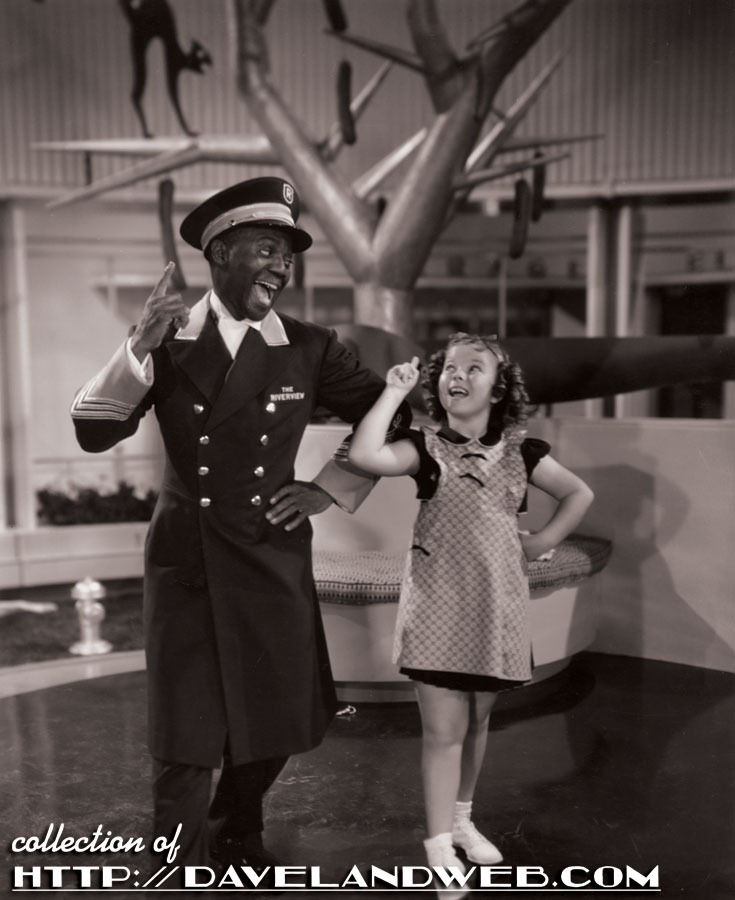
…and “I Love to Walk in the Rain”"
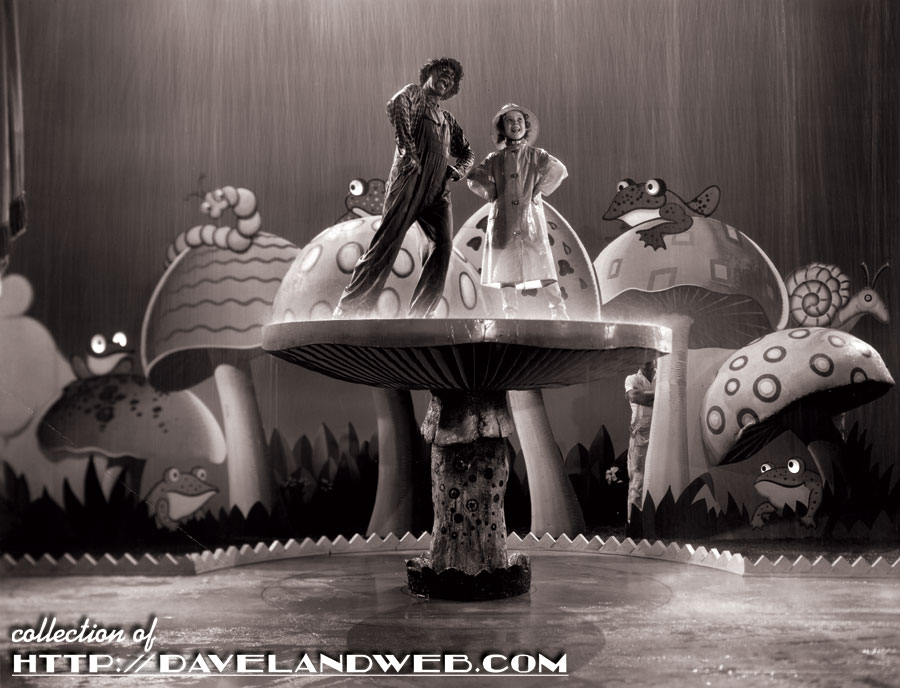
I’d also like to give a shout-out to Shirley’s parents, George & Gertrude. Not all children were raised to treat those that are different from them with kindness. Even today, that is something that is missing from the upbringing of far too many.
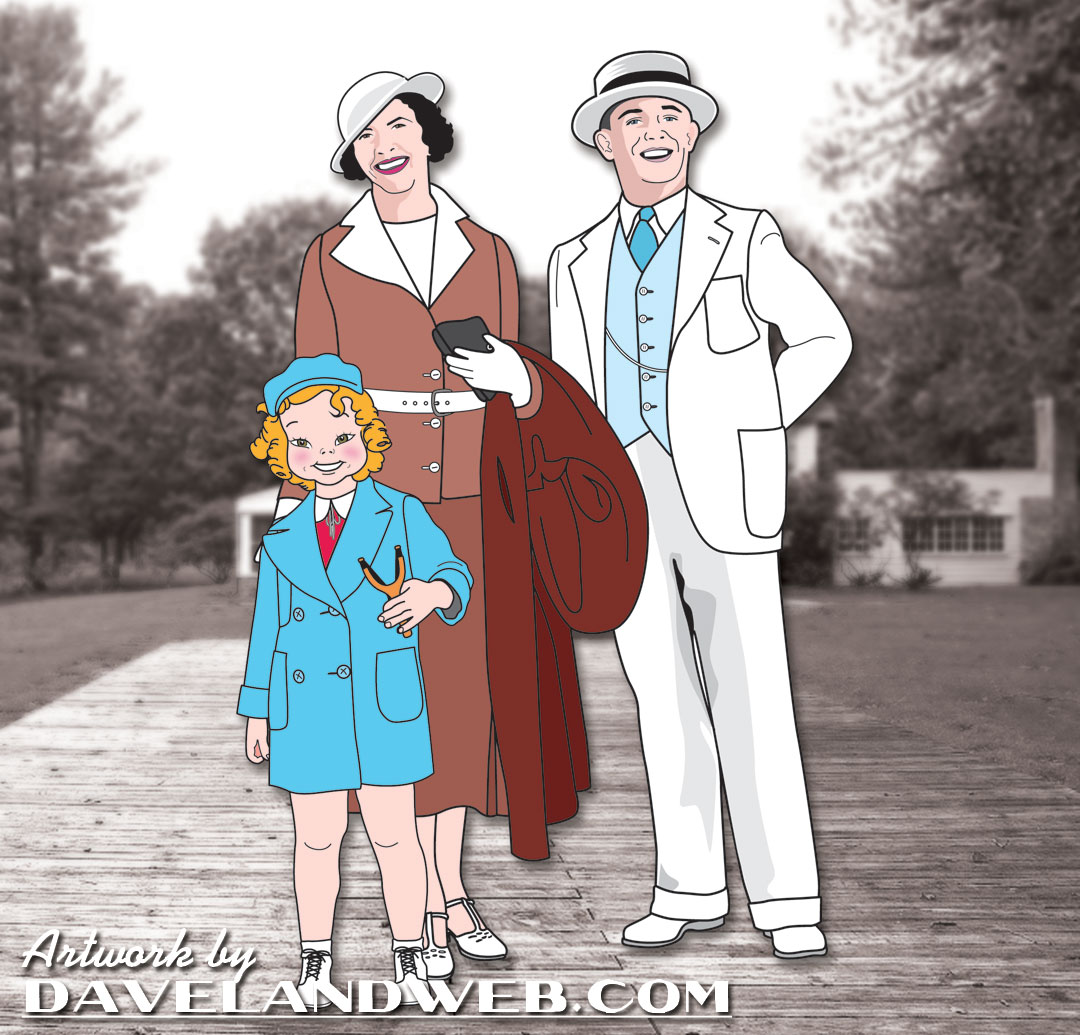
See more Shirley Temple photos at my main website.

3 comments:
Well said. They were wonderful together!
Love this. At a time when many people were choosing to demean on the basis of race, this scene in the little colonel went straight to the core of racism by showing a mutually loving and respectful interracial relationship. It is so clear that they adored each other, and Shirley's instinctive reach for Bill's hand sent a loud message to a global audience that was arguably more effective in tearing down racial barriers than an entire movie on the subject would have been.
Also agree that it's important to have an open and honest discussion about America's history with racism - it's ok to celebrate groundbreaking movies like the little colonel, while recognizing that there was still so much to be done. I do believe this also helps us recognize our blind spots in the present - that we're still not there yet. It is troubling to see these movies being canceled, and iconic actors like Bill Robinson losing the credit that they overcame so many obstacles to achieve.
Beautifully stated, Emile Rose!
Post a Comment